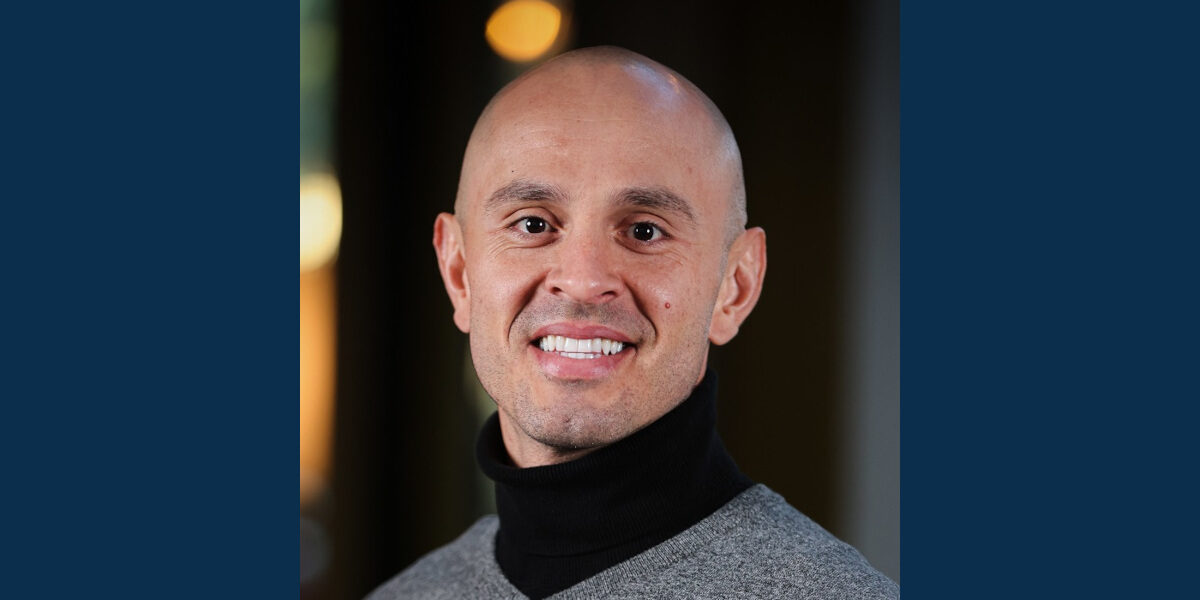

The Power of Belonging
5 min read. Herman G. Hernandez reflects on Los Cien's 10th Annual State of the Latinx Community Address. (Photo by John Burgess, The Press Democrat)
On September 28, the Healthcare Foundation staff attended a rousing set of conversations as part of Los Cien’s annual State of the Latinx Community Address, which this year bore the title, “The Power of Belonging, Shifting Mindsets, and Transforming Communities.”
There was so much in the half-day event of relevance to the Healthcare Foundation’s focus on public health, health equity, and a community power-building approach that we reached out to Los Cien’s executive director, Herman G. Hernandez, in the days following the address to help us share some of the highlights and understand some of the history that went into this community conversation.
As some of our readers may already know, Herman is the son of Los Cien’s founder Herman J. Hernandez, who the Healthcare Foundation was pleased to recognize last year with the Wetzel Community Leadership Award.
This was the 10th annual address. Can you tell us about its origins?
When it started, it was really focused on the economic impact that Latino community members had in Sonoma County and the North Bay. I believe the original address featured the CEO of the Press Democrat at the time, Steve Falk, the chief editor of the Press Democrat, Cathy Barnett, and the superintendent of Santa Rosa City Schools, Socorro Shiels. It’s evolved a lot over the last ten years. They were planning this event in November ten years ago when, in October, Andy Lopez was murdered by sheriff’s deputy Gelhaus in Moorland. Los Cien led a community conversation as soon as that happened, with the chief of police and the sheriff at the time, Steve Freitas, and District Attorney Jill Ravitch. That was the impetus for Los Cien moving meetings to the Flamingo Hotel. That allowed us to have more than 20 people in the back room of Mary’s Pizza Shack, and to evolve into the way we congregate now where there’s 200 or 300 people at the programs.
What was the turnout this year?
Last Thursday we had over 600 people in the ballroom at Sonoma State. It’s the second year in a row that we sell out about five weeks before the conversation. We only had seats for 550 people but we have standing-room-only and seats that surround the whole ballroom.

Who is in the room for these conversations?
It’s a diverse mix—people from the nonprofit sector, government sector, private sector. CEOs of banks were in the room. We had regional vice presidents of Kaiser, Sutter Health, the executive directors and CEOs of the community health centers. We had Santa Rosa Community Health Center there, Alexander Valley Community Health Center, Petaluma Health Center. There were multiple school districts there, the Sonoma County Office of Education was there, the County of Sonoma Administrator Christina Rivera was there. There were definitely over 40 elected officials. We also have students in the room from Sonoma State and high schools in Sonoma County. We try to fill about 25% of the room with people who can’t afford to pay the ticket price. So we have students and also community organizers, who are mostly monolingual Spanish speakers, who attend these conversations as well.
Is the conversation in English and Spanish?
For the most part we have the conversation in English and have live interpretation in Spanish.
This year’s subtitle points to the power of belonging. Can you tell us about this focus?
The subtitle came from our planning committee. They wanted to focus on the power of belonging, how when people’s mindsets shift it can lead to a greater sense of belonging, and that transforms communities. When people have a strong sense of belonging it changes work culture, it changes community culture, it changes even home culture. We really hammered out the conversation on belonging. The first panel, an amazing panel, focused on lived experience. We wanted to know, What does it mean to belong in Sonoma County? What are things that you feel when you belong, and what does belonging do to your ability to work and live in Sonoma County? It was a very high-energy conversation. We received feedback that people were very inspired by the words of panelists like Dr. Bay Jones, who wrote a poem about belonging. It really got the conversation going.
Our keynote speaker was Evan Holland, a co-founder and senior consultant of the Seed Collaborative. Her message was about how important it is to not just have conversations with people who agree with you but to build relationships with people who have a different view on issues, who aren’t thinking about DEI (Diversity, Equity and Inclusion) and belonging work. She talked about her consulting group, the work they do, and “targeted universalism,” which is specifically about building relationships with people who don’t see eye-to-eye with you, so we can come to a consensus. It was pretty interesting because what she was talking about is what Los Cien has always done. We’re known for bringing diverse perspectives into one room and having a conversation. What happens after the conversation is up to you, but the goal is for you to meet the other people there.
Our last panel focused on systems change and transformation, taking up the belonging conversation and seeing what that looks like in governmental, political, educational, and philanthropic systems. We had directors of equity from Marin County and Sonoma County. We also had someone addressing the philanthropic side, discussing the way we fundraise and give out grants, what that looks like within the context of belonging and also anti-racist values and policies.
How did health or health equity come into the conversation?
Everything is connected to health, since we know that when people don’t feel like they’re part of the community or the society that can be detrimental to mental and physical health. That is a big component, especially in the Queer BIPOC community, which is the conversation we’re having on October 20th. When you feel you’re alone, that can lead to depression, that can lead to anxiety, the endless cycle that includes suicide and other harms. Some panelists did refer to the mental health impacts they experienced as a result of lacking a strong sense of belonging.
Can you say more about the upcoming conversation on October 20th?
One of the reasons we’re having a conversation focused on the LGBTQAI+ and Latinx communities is because historically Los Cien has never used our platform to elevate our LGBTQ community. This has been a year where Los Cien has used our platform to uplift other marginalized voices, to acknowledge that certain challenges that the Latix community experience are also being experienced in Sonoma County by the Native American community, the AAPI community, the African American / Black community. We know that there is a huge stigma within the Latinx community still when it comes to talking about LGBTQAI+ issues. We wanted to shine a light on this. We think it’s important and we should be talking about it, because in 2023 people from the queer community are still fighting for their rights and still fearing that some of their rights will be taken away by politicians. We’re going to delve into the challenges facing people with intersecting identities such as Latinx, Black, Indigenous and other people of color in Sonoma County. We have an organization that will highlight the history of the LGBTQ community in Sonoma County. There will be a panel talking about peer support and what’s going on in Sonoma County to support our youth and adults experiencing homophobia, because that’s still a thing here. It’s going to be a good conversation. Every conversation we have is always inspiring and educates all of us, not just the people who attend but also the people who are working on the program. There’s also going to be food trucks, and other organizations tabling. Everyone is invited.
What do you see as some of the more significant changes since the first State of the Latinx Community Address?
We’ve seen glimmers of light in Sonoma County—businesses, school districts, government departments who are working to create more accepting cultures and workplaces. We know there are organizations that really value uniqueness and diversity. They’re striving to uplift people’s voices and lived experiences so that workers and teammates feel included. They’re building a culture where people are unafraid to speak up or say something that’s on their mind, knowing that they’re not going to get punished for doing so. But we also know that there are a lot of industries and organizations in Sonoma County that are behind the eight ball.
What is more evident than ever is that we have to keep having conversations, difficult ones, because there are a lot of marginalized voices that don’t get a platform, they don’t get heard. We want to do everything we can to utilize our social capital to uplift those voices. What’s impacting our Latino community is impacting our whole community. Sonoma County has so much work to do. We know that our communities of color deserve better.
Change starts when we’re speaking honestly and openly about difficult subjects. We won’t know until next year or three years from now what last week’s conversation inspired. But there’s always an effect. People left inspired. We’re still hearing all sorts of feedback. The buzz people left Sonoma State with was infectious.
We know that there are corporate companies, nonprofits, and educational institutions that want to continue to do the work, but they don’t want to do it alone. They need thought partners and community partners. That’s where Los Cien comes in, as a connector, so that we feel we’re all doing this together—we’re all changing our community together for the better. I’m excited. It’s a lot of work, but we know that we have to keep doing it.

Related News + Stories
Invest in Our Community
Your support is vital to our collective vision of eliminating health inequities in northern Sonoma County.
Donate



